You may have heard that Google Maps just pulled an experimental feature that told users how many calories they’d burn if they walked to a destination instead of driving. The feature was intended to promote exercise and greater awareness of energy balance, but pushback from eating disorder treatment professionals—as well as troubled consumers—turned the tide.
The app not only showed the caloric deficits associated with walking, but it also framed these deficits in terms of food: for example, it would inform users that a certain walking distance “burns around 125 Calories—that’s more than 1 mini cupcake!” (Mini cupcake icon included.)
Reading about the controversy, I was brought back to anorexia recovery, when my commitment was constantly tested by our cultural focus on weight loss. I did my best to eliminate the triggers I could: I stopped reading certain blogs, I stopped purchasing most women’s magazines, and I consciously excused myself from passing conversations that were focused on dieting or exercise.
Eventually I realized that it was impossible to hide from diet talk and food noise. Instead, I would have to train myself to handle them.
It took me years to understand that exposure to diet culture hadn’t just triggered me; it had also brought to the surface a lot the anger I was carrying around about my recovery process. I told myself that I was angry at a cultural dialog that condones body shaming, and this was part of the truth.
The whole truth is that I was also angry to not to be a part of this culture anymore: the rituals of starting a new diet, having a new “thing” with food, monitoring my body’s inputs and outputs. Those rhythms had ruled my life for so long, and I felt lost without them. To indulge them, I knew, would be a rejection of the healing process I had committed to. I could distance myself from them, but I couldn’t help envying those who didn’t have to.
At that point, I needed recovery a lot more than I wanted it. Things changed. Eventually I would discover how liberating it is to hop off of the dieting roller coaster for good. I would realize that I’m entitled to eat simply because it keeps me alive, and it tastes good, not because I’ve burned off so many calories exercising or walking. I stopped defining my diet in terms of what I avoided, and I stopped flirting with shiny new restrictive experiments or food eliminations.
Back then, calorie and activity tracking were still specifically associated with weight loss. Nowadays, tracking has become a lot more normalized, thanks to apps and Fitbits and the like. You don’t have to identify with being on a diet to monitor how many calories you burn in a fitness class, or how many steps you’ve taken over the course of a day.
I have to wonder the impact that the mainstreaming of activity/food tracking has on men and women in ED recovery, not to mention anyone who’s susceptible to fluctuations in body image. It pains me to think that there are more triggers than ever, even though I understand why these programs, apps, and devices exist and see their potential value.
As the Times article notes, consumption of high-calorie, low-fiber foods and inactivity are major health threats in America. While it would be nice to think that our epidemic of lifestyle-related diseases could be combatted exclusively through mindfulness, I know that’s a lot to ask. Forging a conscious relationship with food takes time, energy, and emotional investment, whereas tracking promises dependable and timely results: do the math, stick to a plan, and you’ll get the results you want.
I’m glad that Google pulled the maps feature, because it wasn’t elected: users were forced to see theoretical calorie burns whether they opted to or not. I think ED treatment professionals were right to intervene, and I’m not surprised that many consumers reported feeling shamed by the app. At the same time, I don’t condemn tracking programs, so long as they remain voluntary. I know that they help some people, and so long as that’s true, I’m glad they’re out there.
A huge part of ED recovery is learning to accept one’s own health needs without having to generalize them. You can’t create a trigger-free world for yourself, and you can’t police the way that other people experience food, exercise, or body image. Tracking and calorie counting work for some people, and dieting can be an appropriate health choice, depending on the circumstances. Those who have suffered through disordered eating may always need to create strong boundaries around these topics, and that’s OK. But it’s personal.
I kept coming back to this thought as I read about the Google maps controversy over the weekend. I was less interested in the controversy itself than in the question of how we can all navigate an increasingly BMI-focused world while honoring our bodies. I was reminded that my ED recovery would not have been possible without my learning to identify and protect my needs while letting go of the expectation that my environment would ever make it easy.
Today, I want to offer up strength and encouragement to those of you who might be experiencing anxiety, triggers, shame, or any other tensions as you navigate the journey toward body respect. We dwell in a complex food environment, and we’ll continue to see a lot of proposed solutions in the coming years. Most of them will be well-intentioned, and some of them might be tone deaf or have unintended consequences. The best any of us can do is to stand by ourselves and our unique relationships with food, trusting that intuition will guide us toward the tools that serve us best.
On that note, here are some of the recipes that have called out to me in the past week.
Recipes
I’m so into Amanda’s creamy vegan pumpkin pasta: it’s pure comfort food with a short ingredient list!
This mushroom soup is so nutritious, packed with vegetables, white beans, and turmeric. Just the thing to fend off a fall cold with (though fingers crossed we all manage to escape those this season).
Another soup, this one of the blended/creamy variety. I love how flavorful Lindsay’s Zanzibar carrot tomato soup is; it’ll be a great way to satisfy my love of tomatoes once the fresh ones are out of season (sniffle).
My mind is already inevitably turning to Thanksgiving ideas, and I’m so inspired by Rosie’s maple pecan sweet potato pie. It’s a true sweet and savory hybrid—she describes it as a sweet potato pie and shepherd’s pie hybrid—which is right up my flavor alley.
Is it possible to bookmark too many vegan chocolate chip cookie recipes? Hope not. Erin’s awesome looking vegan chocolate chunk cookies are my latest pick.
Reads
1. The New York Times reports on Google maps’ calorie counting feature.
2. Joanna put this series of photographs on my radar. Artist Conor Nickerson photoshopped current images of himself onto childhood photographs, creating a series in which his child and adult selves are hanging out. I think it’s a such touching idea, almost a visual rejoinder to the hypothetical of what we’d tell our younger selves if we had a chance.
4. Many vegans consciously elect to work with vegetarian or vegan RDs, but doing so isn’t always an option, especially if the client prefers to meet in person or has limited options on a health insurance plan. I’m so glad that Matt Ruscigno has contributed this article, a primer on working with vegan clients, to Today’s Dietitian.
Matt doesn’t only address things like B-12 supplementation or meal ideas; he also encourages non-vegan RDs to be sensitive to the fact that there are many motivators for choosing a vegan diet, to ask lots of open, curious questions, and to ask about the healthcare practitioners clients may already be gathering information from online. Great information for the dietetic community to have at its fingertips.
5. Good news for transparency in scientific literature: PubMed will now display information on conflicts of interest and funding right below abstracts. This information is generally disclosed within a paper, but many consumers get information from abstracts, especially if they don’t have subscriptions or access to full articles online. It’s an especially strong step forward in making the public aware of nutrition studies that are funded by industry.
Enjoy the food, enjoy the reads. I’ve got a comfort food dish on the way in a day or two, and I’ll be sharing a flavorful recipe (and giveaway!) from Richa‘s fabulous new cookbook on Friday.
xo
You might also like
Hello, hello, and happy Sunday. It’s been a week of highs and lows here: September’s customary temperature swings, some ups and downs in mood, and some recipe testing triumphs followed up by a couple of spectacular fails. It’s all keeping me on my toes. On Monday evening, a friend invited me to check out a new play, called Aubergine. It’s the story of a chef, Ray, whose father has recently entered hospice care. In nursing his dying father, Ray is forced to confront…
Hello, everyone. I hope you had a lovely weekend. This is probably the last weekend I’ll spend in D.C. that doesn’t involve packing, or living among boxes, which is bringing up all sorts of nostalgia (mixed with excitement to be back in New York). More on that soon. For now, weekend reading. 1. First up, a gorgeous amaranth and cherry panzanella salad from Dolly and Oatmeal. So, so pretty. 2. Elenore’s matcha frappe. Want. Now. 3. Boy, is this my kinda salad. Tempeh bacon,…
In the summer of 2010, I signed up for Nutrition I at Hunter College. I was twenty-eight, a professional book editor who hadn’t taken a science class since high school. Uncharacteristically for me—I’m usually very decisive—I couldn’t decide between a future in medicine, dietetics, or mental health. But I knew that I wanted to make a career change, and this was the place to start. I loved my job, but I loved helping people to experience pleasure and well-being through food even more….
Happy Sunday, everyone. It’s so hard to believe that we’re headed into the last days of August–the summer months always seem to fly by. I’m gearing up for my first full semester of my R.D. program, which means reconfiguring my work/client schedule, and also trying to keep up with publication of Food52 Vegan. September will be busy, but full of exciting things! Here are the recipes and reads that I’ve been digging into this weekend. First up, comfort food snacking, courtesy of my friend…

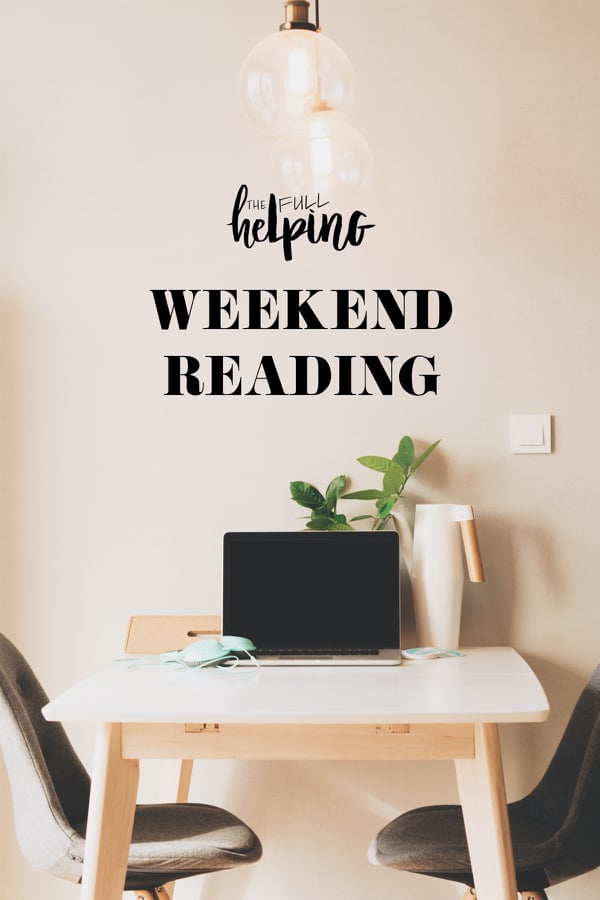
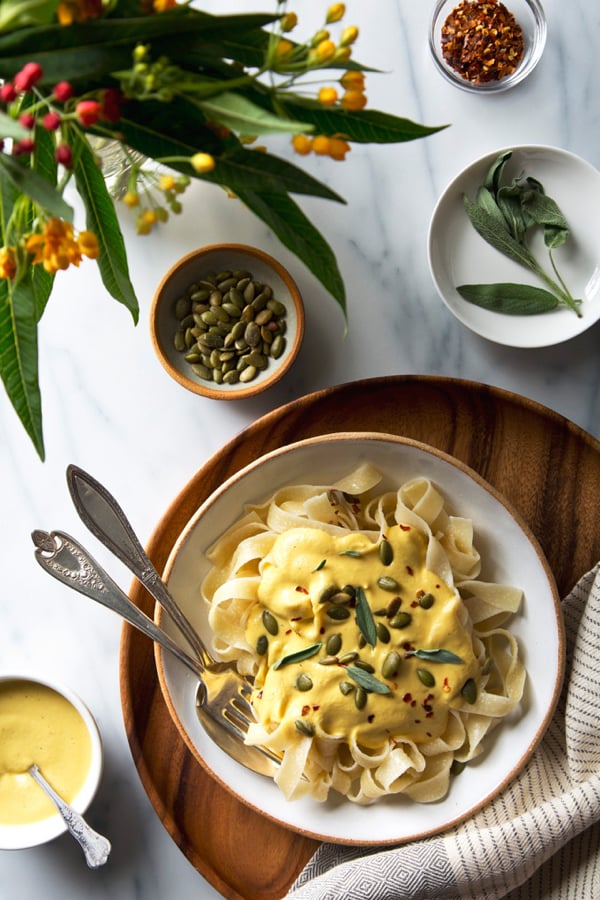
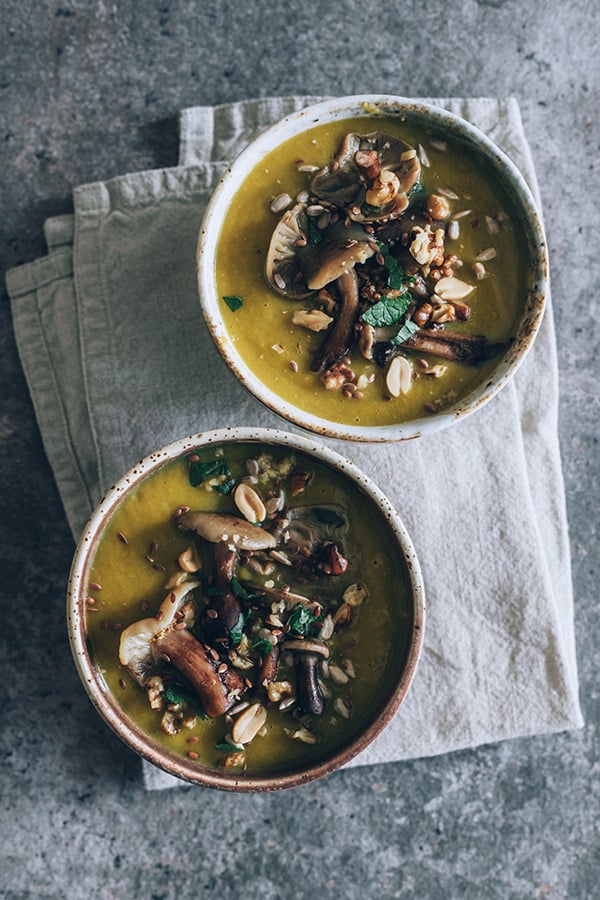
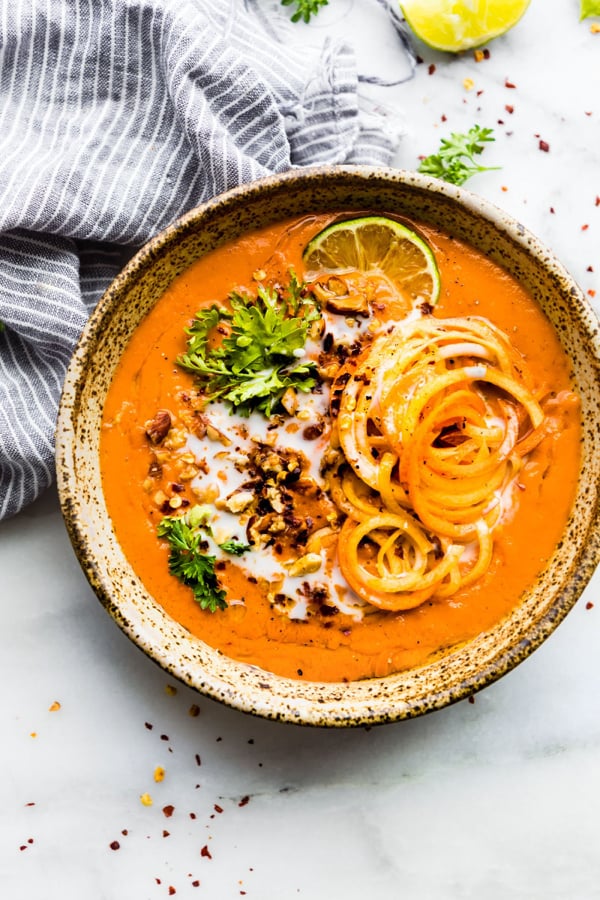
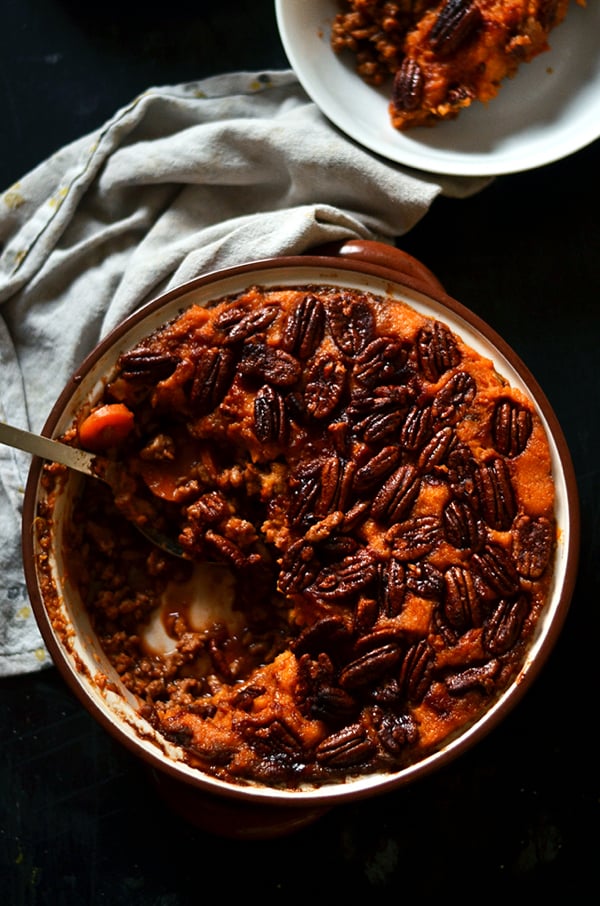
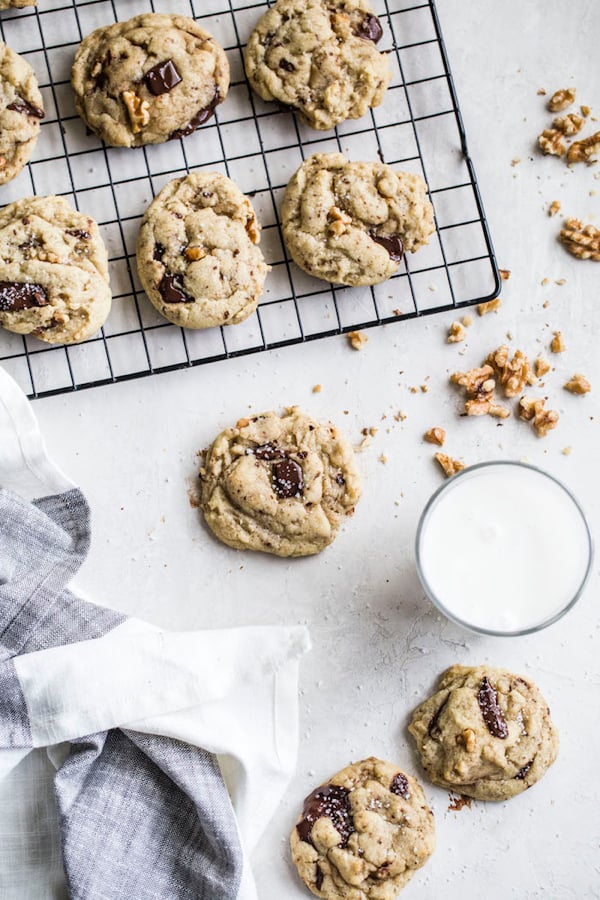
Leave a Comment
This is the first time I’ve ever read one of your posts. I thoroughly enjoyed it, and like the way you write. I love all the recipes you shared and will definitely be trying some. I went plant based a few months ago and am loving it. I apologize in advance if there are a lot of spelling errors in my comment.
Awesome article. Thanks for the feature – really appreciate it!
thank your for this post. As someone who is currently struggling with an ED, I can tell you from my standpoint all the focus on exercise tracking is having a negative effect. While I can see how it might be normalizing for some people, the seemingly constant focus on the exercise and weight loss dynamic results in a constant triggering of internal stuff. I don’t have the trust in myself and can’t seem to develop it at this point. I wish i could just turn it all off for a while but i’m not sure that is possible. Thank you for continuing to share your story and being an example for the possibility of recovery with a lot of hard continual work.
Thank you for this post. I’m in the midst of recovery and trying to navigate being what’s healthy for me, with the bombardment of the media’s idea of healthy, is hard. I’m also working on my confidence, which if I ever get some, will help too!!! 🙂
Dear Gena, thank you for sharing your thoughts and feelings on ed, I really appreciate your truthfulness. Thank you!
Gena, I have never suffered from an ED, but your commentary and perspective on your responsibility within an obsessed culture was just incredible. This is a freelance article or even book in the making. 🙂 I’m a big fan of the work you do and your recipes!